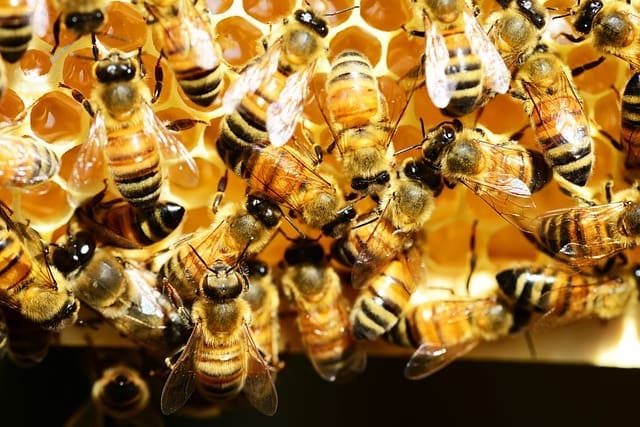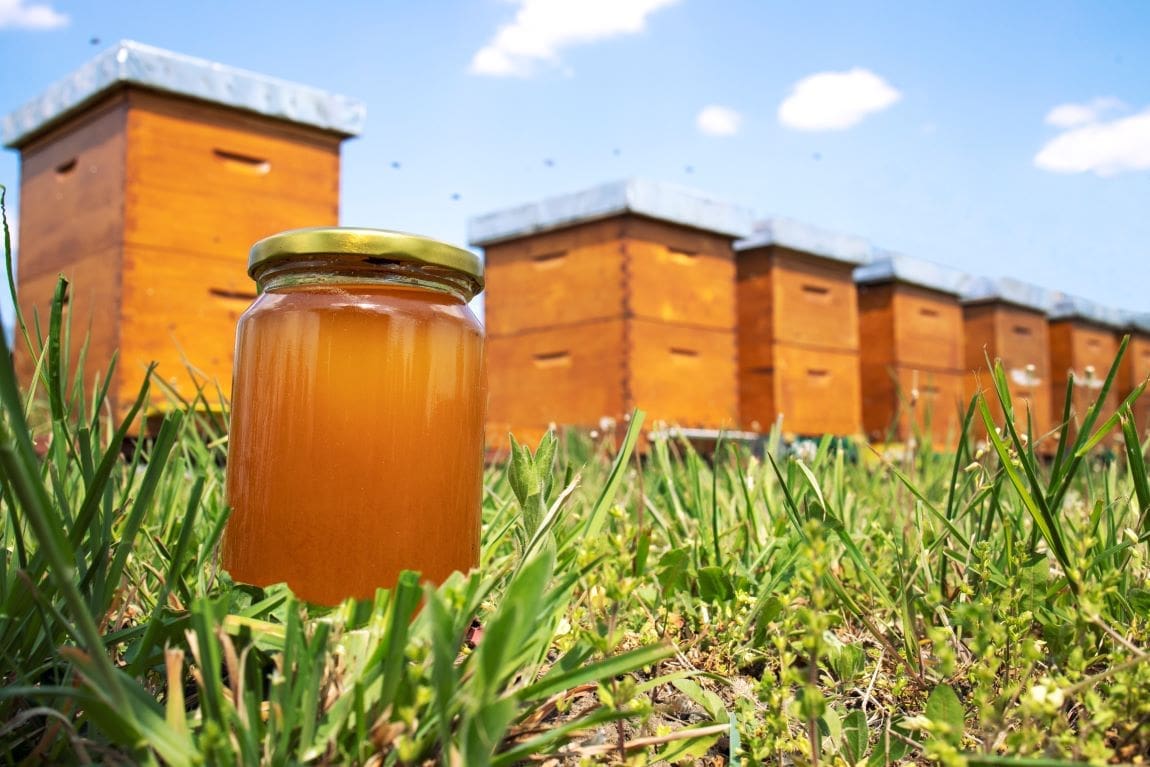A recent study conducted by researchers from Martin Luther University Halle-Wittenberg (MLU) and the University of Göttingen has revealed that organic farming and the use of flower strips significantly benefit the health and vitality of honeybee colonies.
Published in the Journal of Applied Ecology, the study sheds new light on how specific agricultural practices impact bee health, particularly in the context of the growing threat posed by intensive farming methods.

According to the study, honeybee colonies located near organic farms and flower strips showed stronger growth and better overall health compared to those in conventionally farmed areas. The researchers attribute these positive effects to the diverse and continuous food supply available in these environments and the reduced exposure to harmful pesticides.
“In theory, these measures all make sense. However, we know little about how each of these affects insects, especially honey bees,” explained Professor Robert Paxton, a bee researcher at MLU. Paxton emphasized that the way land is cultivated has a profound impact on nature, especially for pollinators like honeybees.
The research team conducted their study across 16 locations in Lower Saxony, Germany, each with varying proportions of organic fields, flower strips, and perennial semi-natural habitats. They placed honeybee colonies at each site and monitored them for a year, assessing factors such as colony growth and parasite infestation, with particular attention to the varroa mite, a notorious pest known to transmit deadly viruses to bees.
The results were clear: organic farming had the most significant positive impact on honeybee health.
“The larger the proportion of organic areas, the lower the parasite infestation of a colony. This improved colony growth,” noted lead author Patrycja Pluta from MLU. The researchers believe that the reduced use of pesticides in organic farming, coupled with alternative plant protection methods, may be responsible for these benefits.
Flower strips also proved beneficial, as they were associated with lower varroa mite infestations. “This could be due to the fact that a diverse and rich food supply strengthens the honey bees’ immune system,” Pluta suggested.
Interestingly, the research found that perennial semi-natural habitats, although important for overall biodiversity, were less advantageous for honeybees. Larger areas of these habitats were linked to higher varroa mite infestations.
Unlike flower strips, these areas do not provide a continuous food supply specifically designed for honeybees and other pollinators. “Perennial semi-natural landscapes are an important tool for promoting biodiversity and they serve as a habitat for many animals. Honey bees, that are managed by humans, are the exception,” Paxton explained.
The study’s findings are expected to contribute to better management practices in agricultural landscapes, aimed at supporting the health of honeybees and other pollinators.
***
The research was funded by the Federal Ministry of Food and Agriculture and the German Research Foundation (DFG).
Journal Reference:
Patrycja Pluta, Kathrin Czechofsky, Annika Hass, Lena Frank, Ansgar Westerhoff, Heiner Klingenberg, Panagiotis Theodorou, Catrin Westphal, Robert J. Paxton, ‘Organic farming and annual flower strips reduce parasite prevalence in honey bees and boost colony growth in agricultural landscapes’, Journal of Applied Ecology (2024). DOI: 10.1111/1365-2664.14723
Article Source:
Press Release/Material by Martin-Luther-Universität Halle-Wittenberg
Featured image credit: Freepik




